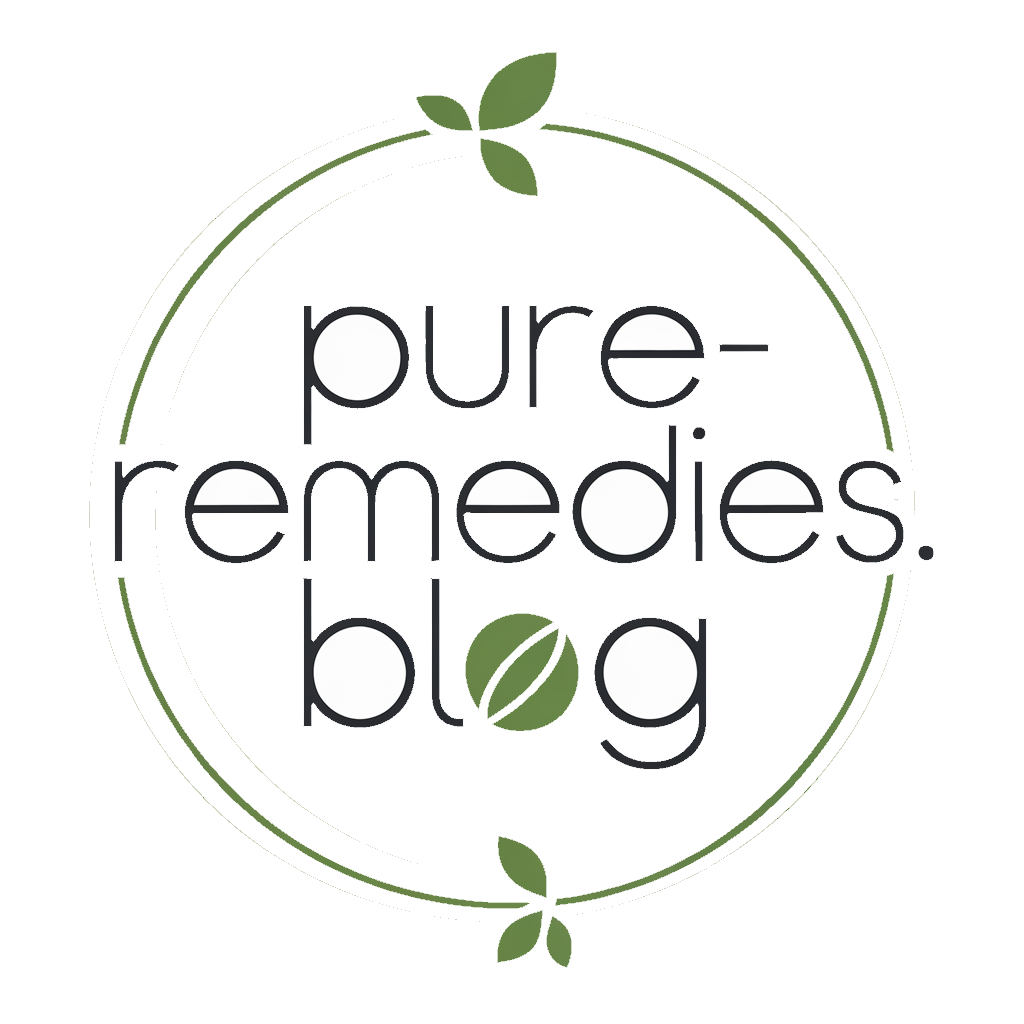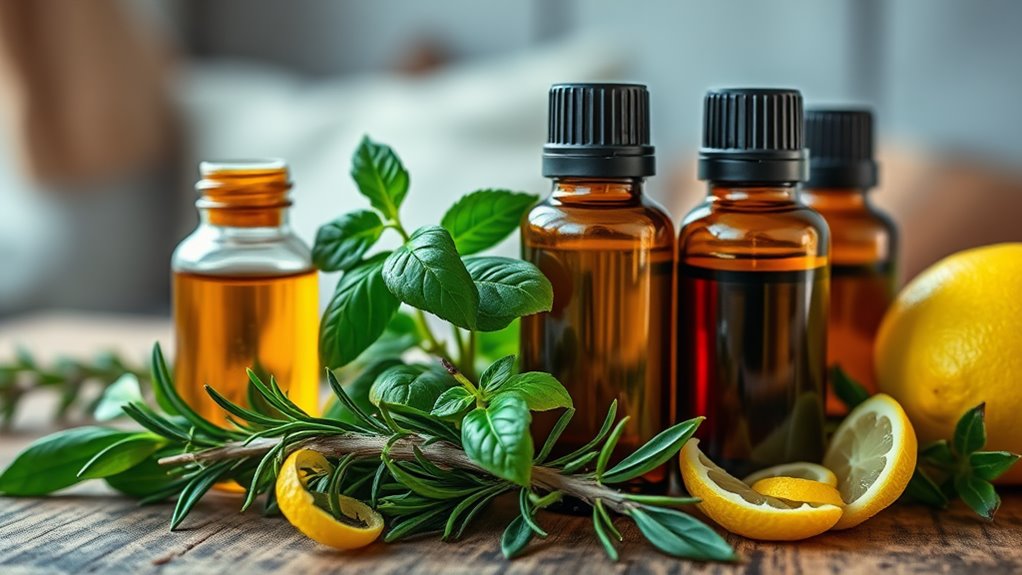Use These Essential Oils to Stay Healthy This Season
To support your health, to boost your immunity, and to enhance your well-being this season, essential oils can play a vital role. Eucalyptus, tea tree, and lavender each offer unique benefits that can help you navigate seasonal challenges. By understanding how to use these oils effectively, you can create a routine that promotes wellness and reduces stress. Discover how to incorporate these powerful tools into your daily life for lasting health benefits.
Key Takeaways
- Eucalyptus oil supports respiratory health and clears pathways, making it ideal for seasonal health challenges.
- Tea tree oil offers powerful antimicrobial properties, boosting immunity and fighting infections effectively.
- Lavender oil promotes relaxation and resilience, supporting overall wellness during stressful seasons.
- Implement the 4-7-8 breathing technique to enhance relaxation, triggering positive health responses.
- Incorporate essential oils in culinary uses, like lemon oil, for added flavor and nutritional benefits.
Benefits of Essential Oils for Health
Essential oils, nature’s potent extracts, offer a myriad of health benefits that can enhance your overall well-being. Understanding aromatherapy basics is essential to harness their power effectively. You can use oils like lavender for relaxation or eucalyptus for respiratory support. Beyond aromatherapy, many essential oils have culinary uses, adding flavor and nutritional benefits to your meals. For instance, a drop of lemon oil can brighten a dish while providing antioxidant properties. Integrating these oils into your daily routine can elevate your health, making them a valuable addition to both your self-care practices and your kitchen adventures. Additionally, the therapeutic properties of essential oils have been supported by scientific evidence, highlighting their potential in promoting well-being.
Top Essential Oils for Immune Support
When it comes to boosting your immune system, certain essential oils can play a significant role. Eucalyptus oil can help clear respiratory pathways, while tea tree oil is known for its powerful antimicrobial properties. Don’t overlook lavender oil, as its calming effects can also support overall wellness and resilience. Additionally, certain essential oils have been shown to exhibit anti-inflammatory properties, which can further enhance immune function.
Eucalyptus Oil Benefits
Eucalyptus oil stands out as a powerful ally for boosting your immune system.
Its benefits extend beyond health support, making it a versatile addition to your routine.
Consider these key advantages:
- Acts as a natural insect repellent, keeping pesky bugs at bay.
- Provides air freshening properties, purifying your environment.
- Supports respiratory health, helping you breathe easier.
Incorporating eucalyptus oil into your daily life can enhance your overall well-being.
Whether you diffuse it, apply it topically, or add it to cleaning products, you’ll enjoy both the aromatic experience and immune-boosting benefits.
Embrace eucalyptus for a healthier season ahead!
Tea Tree Oil Uses
Have you ever wondered how tea tree oil can enhance your immune support? This powerful oil boasts antibacterial, antiviral, and antifungal properties, making it a must-have for your wellness routine. You can use it as an insect repellent to keep pesky bugs at bay, or mix it in a spray to freshen your fabrics. Check out the table below for more uses:
| Use | Benefits | Application |
|---|---|---|
| Insect Repellent | Keeps bugs away | Spray on skin/clothing |
| Fabric Freshener | Removes odors | Mix with water and spray |
| Immune Support | Boosts overall immunity | Inhale or diffuse |
Lavender Oil Properties
Lavender oil is renowned for its calming properties, but it also plays a significant role in supporting your immune system.
This essential oil, derived from the Lavandula angustifolia plant, boasts a unique chemical composition that enhances its health benefits.
- Rich in antioxidants, it fights free radicals.
- Its anti-inflammatory properties help reduce stress on your body.
- Lavender oil’s antibacterial qualities can help ward off infections.
How to Use Essential Oils Safely
How can you ensure that the benefits of essential oils don’t come with unwanted risks?
Start by researching each oil’s properties and recommended uses.
Always dilute essential oils before applying them to your skin to prevent irritation.
For child safety, avoid oils that can be toxic or irritating, like eucalyptus or peppermint, and consult a pediatrician if unsure.
When it comes to pet precautions, keep oils out of reach and avoid using certain oils like tea tree or citrus oils, which can be harmful to animals.
Diffusing Essential Oils for Seasonal Wellness
Embracing the power of diffusing essential oils can significantly enhance your seasonal wellness.
With the latest diffuser innovations, you can create an uplifting atmosphere that promotes health.
Here are a few benefits of using seasonal fragrances:
- Boosts mood and energy levels
- Supports respiratory health
- Creates a calming environment
- Additionally, certain essential oils, such as ginger and lavender, have been historically used for their natural migraine relief properties.
Essential Oils for Stress Relief and Mental Clarity
What if you could harness the natural power of essential oils to alleviate stress and enhance mental clarity? Oils like lavender, rosemary, and peppermint can act as effective anxiety remedies, promoting relaxation and focus. Pair these oils with cognitive exercises, such as deep breathing or mindfulness, for a stronger effect. Research suggests that mindful breathing can significantly enhance the calming effects of these oils, making the combination even more powerful.
| Essential Oil | Benefits | Application |
|---|---|---|
| Lavender | Reduces anxiety | Diffuse in your workspace |
| Rosemary | Enhances concentration | Inhale during study breaks |
| Peppermint | Boosts energy | Add to a personal inhaler |
Incorporate these oils into your routine for a calmer, clearer mind.
Blending Essential Oils for Maximum Effectiveness
To maximize the benefits of essential oils, it’s crucial to choose complementary oils that enhance each other’s properties. Proper dilution techniques also play a vital role in ensuring safety and effectiveness. Incorporating natural anti-aging remedies into your routine can further boost the overall health of your skin.
Choosing Complementary Oils
How can you maximize the benefits of essential oils? By choosing complementary oils, you can enhance their effectiveness and create a powerful synergy. Consider these pairings:
- Lavender and Peppermint for relaxation and headache relief.
- Tea Tree and Eucalyptus for immune support and respiratory health.
- Lemon and Rosemary for mental clarity and energy.
These combinations often reflect cultural matches and historical pairs used for centuries.
Proper Dilution Techniques
Proper dilution techniques are crucial for maximizing the benefits of essential oils while ensuring safety.
To achieve this, you’ll need to understand dilution ratios. Generally, a 2% dilution is ideal for topical applications; that’s about 12 drops of essential oil per ounce of carrier oil.
Carrier selection is equally important—choose oils like coconut or jojoba for skin-friendly options. Always perform a patch test to check for sensitivities.
Remember, proper dilution not only enhances effectiveness but also minimizes the risk of irritation.
Incorporating Essential Oils Into Your Daily Routine
Incorporating them into your daily habits can enhance your well-being.
Here are some simple routine practices to consider:
- Add a few drops of lavender oil to your pillow for better sleep.
- Use a citrus oil in your morning diffuser to energize your space.
- Mix peppermint oil with a carrier oil for a refreshing massage after workouts.
Additionally, practicing a simple breathing technique like the “4-7-8 method” can further trigger the body’s relaxation response and support your overall health.

